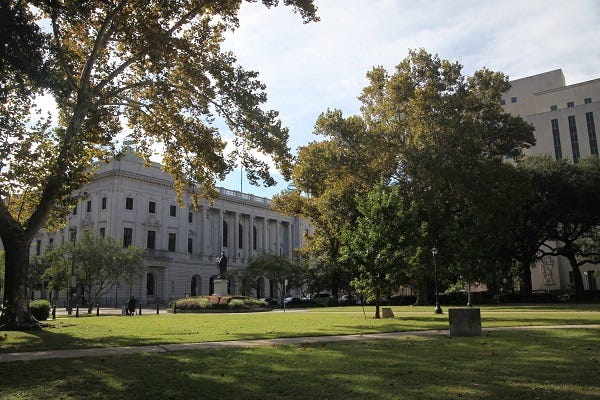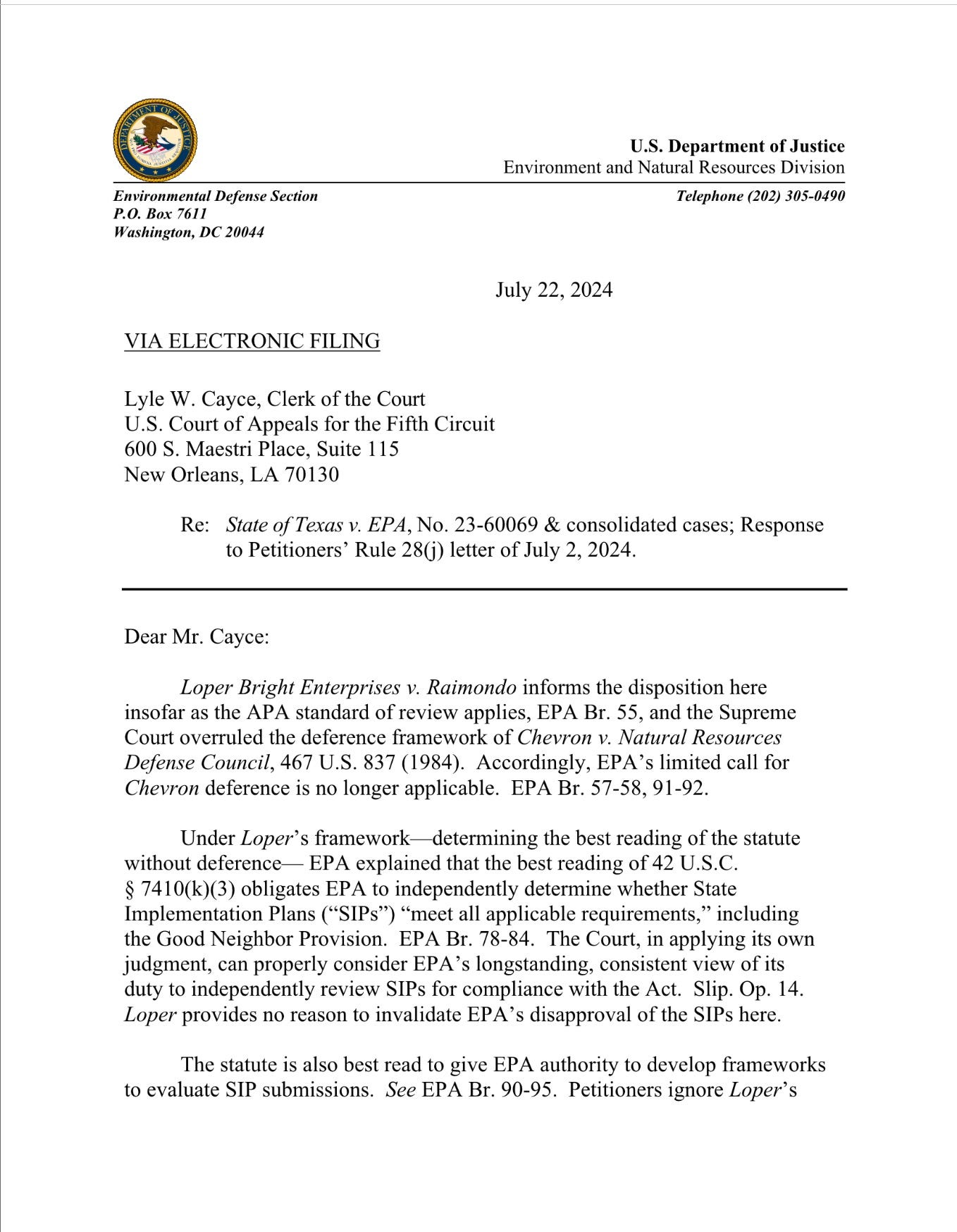Pretty much the whole world knows the Chevron case that gave unwarranted deference to Federal agencies in interpreting statutes enacted by Congress was overturned a few weeks ago. The case used to accomplish the overturn after four decades of abuse by the EPA and other agencies is commonly called Loper and it has caused a flood of new litigation as states and others have pushed back against EPA overreach.
One of those pushbacks is “State of Texas v. EPA, No. 23-60069 & consolidated cases,” a case before the 5th Circuit Court of Appeals in New Orleans. It is a case challenging the EPA’s Good Neighbor Provisions regarding ozone pollution across state lines. Texas is challenging the plan and the rules applied by EPA thereunder.
The arrogant EPA, unsurprisingly, is not going away quietly. Sarah Izfar, a Trial Attorney at Department of Justice, Environment & Natural Resources Division, has written this letter to the court:
The key elements of the letter are bolded and italicized below:
Under Loper’s framework—determining the best reading of the statute without deference—EPA explained that the best reading of 42 U.S.C. § 7410(k)(3) obligates EPA to independently determine whether State Implementation Plans (“SIPs”) “meet all applicable requirements,” including the Good Neighbor Provision. The Court, in applying its own judgment, can properly consider EPA’s longstanding, consistent view of its duty to independently review SIPs for compliance with the Act. Loper provides no reason to invalidate EPA’s disapproval of the SIPs here.
The statute is also best read to give EPA authority to develop frameworks to evaluate SIP submissions. Petitioners ignore Loper’s holding that some statutes “empower an agency to prescribe rules to fill up the details” or to regulate within “limits . . . that leave[ ] agencies with flexibility.” Here, Congress delegated to EPA authority to determine whether SIP provisions are “adequate” to prohibit harmful interstate emissions.
EPA’s development and application of its framework are subject to the APA’s standard of review for policymaking and factfinding. Loper reaffirmed that “Section 706 does mandate that judicial review of agency policymaking and factfinding be deferential,” and that agencies’ interpretations “may be especially informative to the extent [they] rest[] on factual premises within the agency’s expertise,”
Further, for “prior cases that relied on the Chevron framework,” Loper did not disturb the holdings that the challenged agency actions were lawful. Those prior cases include EPA v. EME Homer City Generation, L.P., 572 U.S. 489 (2014), and BCCA Appeal Group v. EPA, 355 F.3d 817 (5th Cir. 2003), discussed at length in EPA’s brief.
See what I mean? The DOJ attorney, speaking for EPA, is using double talk to tell everyone its filings and its opinions are what count and not those of the Supreme Court. Sarah Izfar is effectively informing the 5th Circuit Court of Appeals that the EPA is the home of the experts and nothing should interfere with its decisions. The condescension is palpable. I predict it will take more than one Loper decision, and quite possibly several decisions, to truly overturn Chevron. The EPA is going to fight every step of the way just as they have on "Waters of the United States” issues.
#EPA #Chevron #Loper #Deference #Ozone #GoodNeighbor








They will not go away, they love power!